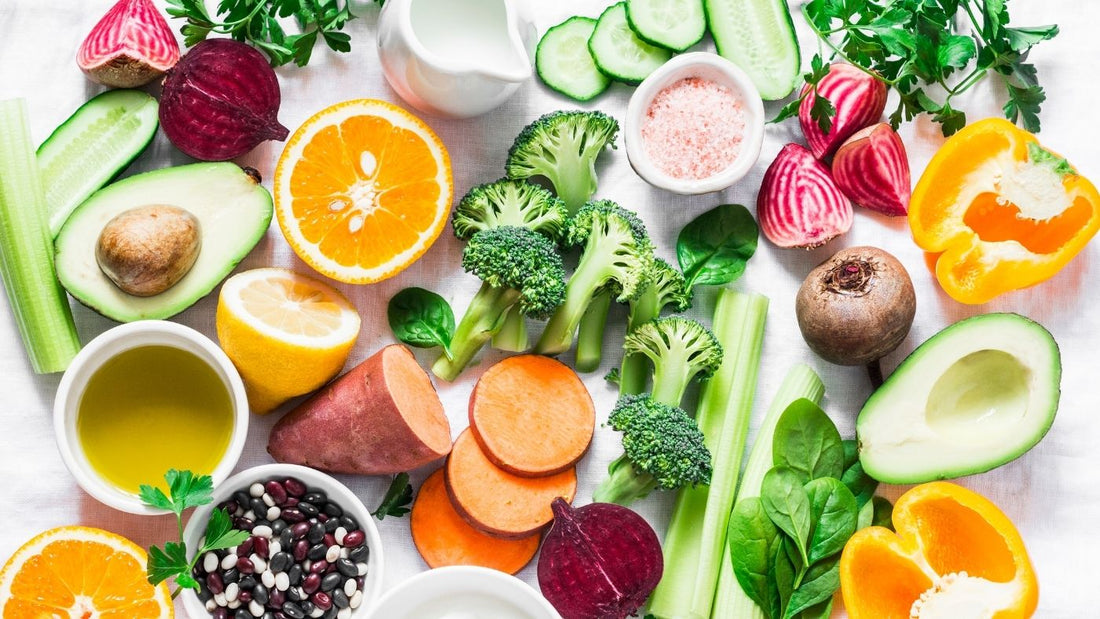Protecting Your Pregnancy with Nicole Luke, APD, AN
Read more

Do you have questions around why we chose to include Vitamin E at the levels we did in FullWell Prenatal? In this article, we aim to provide insight into our rationale around the 100mg of natural vitamin E in our prenatal multivitamin.
First, the basics: Alpha-tocopherol is the natural, non-synthetic, most bioavailable form of vitamin E. You know if you've got natural supplements that contain this form of vitamin E if it lists it as d-alpha-tocopherol and NOT dl-alpha-tocopherol (it's an easily overlooked difference, but the d versus the dl in the beginning sets it apart).
Vitamin E is a critical antioxidant that helps reduce oxidative stress and influences lung development, immune function, and gene expression in babies. In mom, it's an antioxidant as well, reducing oxidative stress, increasing circulation, reducing lipid peroxidation, and improving mitochondrial health. Healthier mitochondria = healthier eggs, which means an easier conception with potentially fewer pregnancy complications. (This is something that I always include in my fertility protocols for my private practice clients.)
Just in case you breezed over the phrase "reducing lipid peroxidation" from above, let me take a minute to highlight how important this function of vitamin E really is. Lipid peroxidation is the oxidative degradation of lipids. In other words, it is what happens to fats when they are exposed to high heat, light or air. Different types of fats are more sensitive to this than others. Polyunsaturated fatty acids (PUFAS) are much more sensitive to lipid peroxidation than saturated fats. PUFAS can be very healthy: after all, they are found in healthy foods like nuts, seeds, olive oil, and fish (omega-3 fatty acids are PUFAS) to name a few. Getting these through diet is great as long as they haven't oxidized through light, heat, air or food processing... which, generally exposes them to all of those things.
Vitamin E preserves and protects against PUFA oxidation. And no matter how much you try to balance your healthy diet, it's virtually impossible to avoid these oxidized, damaged PUFAS. That's where FullWell's hefty dose comes in. A little extra vitamin E in your prenatal vitamin can help to combat this.
We've reviewed the literature and weighed the risks, benefits, and rate of deficiency of vitamin E in determining the levels we put into FullWell Prenatal. We always consider the Daily Recommended Intakes (DRI’s) or RDA in our evaluation, but in many cases - and in our expert opinion - recommendations for vitamin E for conception, pregnancy, and breastfeeding, are set far too low.
Research hasn't revealed the answer to this yet, but we do know that when babies are born, they need vitamin E to combat the huge amount of oxidative stress that they meet when they arrive in the outside world. Quite literally, the lungs of newborns are exposed to reactive oxygen and reactive nitrogen species once they leave the womb. This puts their lungs at risk for damage without the proper antioxidants available to help. The risk here can be as severe as infant mortality.
This study out of Brazil showed that 19% of mothers and 90% of infants had low serum alpha-tocopherol at birth. The infant's vitamin E status was not correlated with the umbilical cord blood (and umbilical cord blood is reflective of maternal blood levels). This study also showed that maternal vitamin E status did not influence the levels of vitamin E in colostrum (the very first milk that breastfed babies receive). Colostrum is very rich in vitamin E, but those levels start to decline after the first 4 days of milk supply, which is normal. Nutrients in breastmilk naturally and miraculously change over time as breastmilk adapts to infant needs.
Not exactly. There is a lot that the scientific community simply doesn't know. What we do know is that the transfer of tocopherol to breast milk occurs through controlled mechanisms, not passively, like placental transfer. And in the case of placental transfer, it is only about 10% of mom's intake.
A study out of Greece compared the vitamin E content in milk at 1, 3, and 6 months postpartum in 64 mothers and found that the vitamin E levels found in breastmilk were reflective of the percentage of milk fat. If mom consumed more fat (saturated fat, in particular), vitamin E levels were higher in their breast milk. But, vitamin E intake via the diet did not influence the vitamin E in breastmilk. And just for reference, if we compare vitamin E content of an American diet v. a Greek diet, Americans consume very similar amounts of vitamin E.
Here at FullWell Prenatal, we care about mother's health too! For those who have followed us for a while now, you know that we are strong advocates of taking a prenatal multivitamin PREconception to help prepare your body for pregnancy and to help influence egg quality. Egg quality matters. There is so much in the very early stages of follicle (and then embryo) development that is influencing the epigenetics (or future health) of baby.
FullWell Prenatal contains 100mg (just under 150 IU's of vitamin E). This is actually a quite conservative amount to supplement with despite the RDA being much lower.